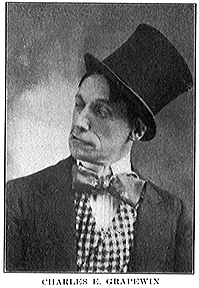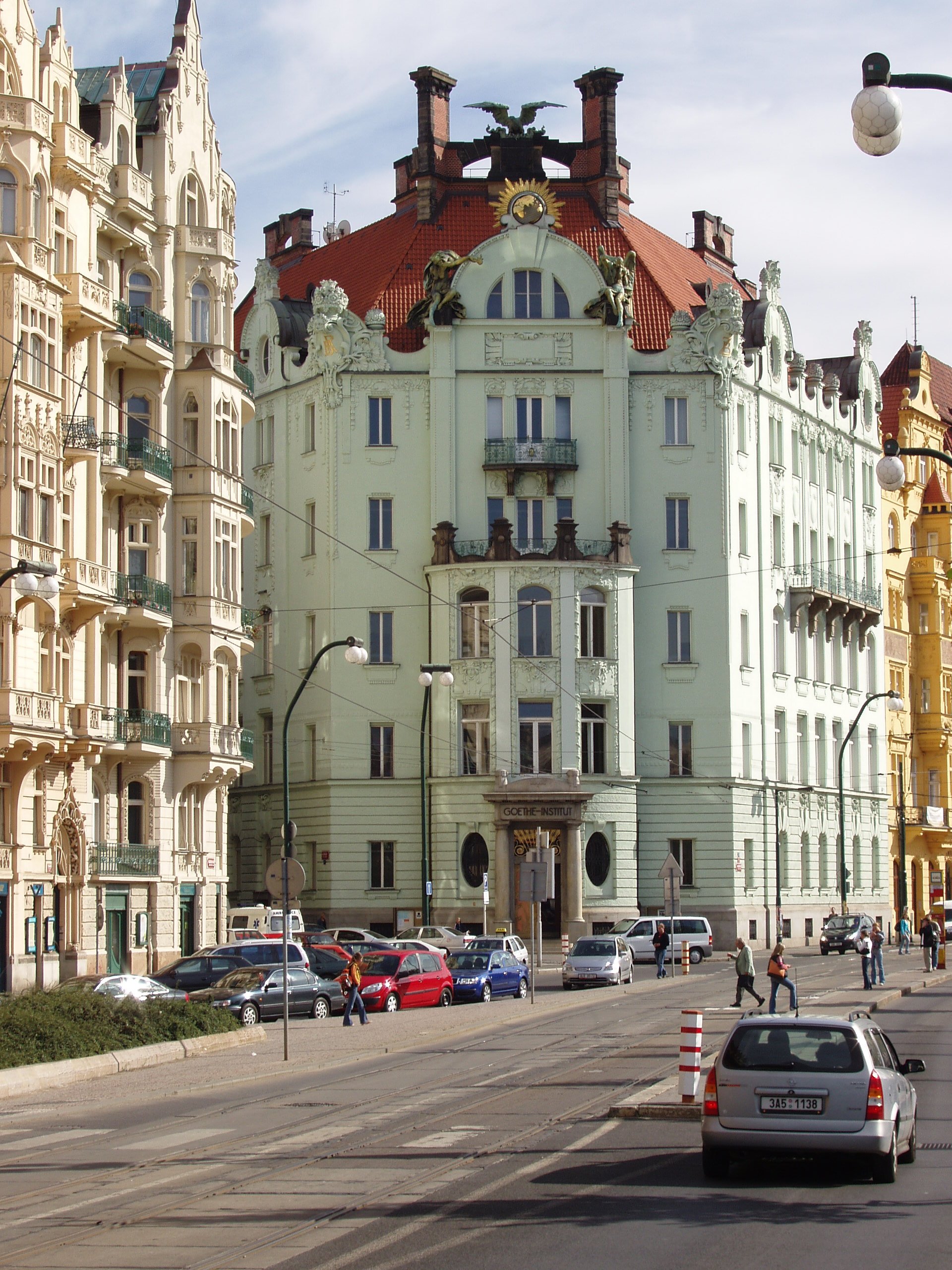|
Flametti, Or The Dandyism Of The Poor
''Flametti, or The Dandyism of the Poor'' () is a 1918 novel by the German writer Hugo Ball. It is a portrayal of vaudeville life in Zurich and follows Max Flametti, director of a variety-entertainment company on the verge of financial ruin. The semi-autobiographical novel was inspired by Ball's experience from Zurich variety troupes in the 1910s. It was Ball's first novel. He wrote it in 1916, the same year he co-founded the Cabaret Voltaire and wrote the Dada Manifesto, and it was published two years later by in Berlin. The English translation by Catherine Schelbert received the 2015 Helen and Kurt Wolff Translator's Prize. References {{reflist External links Fucking Good Art* Project Gutenberg Project Gutenberg (PG) is a volunteer effort to digitize and archive cultural works, as well as to "encourage the creation and distribution of eBooks." It was founded in 1971 by American writer Michael S. Hart and is the oldest digital li ... Wakefield Press 1918 German n ... [...More Info...] [...Related Items...] OR: [Wikipedia] [Google] [Baidu] |
Hugo Ball
Hugo Ball (; 22 February 1886 – 14 September 1927) was a German author, poet, and essentially the founder of the Dada movement in European art in Zürich in 1916. Among other accomplishments, he was a pioneer in the development of sound poetry. Life and work Hugo Ball was born in Pirmasens, Germany, and was raised in a middle-class Catholic family.Ball, Hugo (1974). '' Flight Out of Time: A Dada Diary by Hugo Ball''. trans. Ann Raimes. New York: Viking Press. . , , , . He studied sociology and philosophy at the universities of Munich and Heidelberg (1906–1907). In 1910, he moved to Berlin in order to become an actor and collaborated with Max Reinhardt. At the beginning of World War I, he tried joining the army as a volunteer, but was denied enlistment for medical reasons. After witnessing the invasion of Belgium, he was disillusioned, saying: "The war is founded on a glaring mistake – men have been confused with machines." Considered a traitor in his country, he crossed ... [...More Info...] [...Related Items...] OR: [Wikipedia] [Google] [Baidu] |
Vaudeville
Vaudeville (; ) is a theatrical genre of variety entertainment which began in France in the middle of the 19th century. A ''vaudeville'' was originally a comedy without psychological or moral intentions, based on a comical situation: a dramatic composition or light poetry, interspersed with songs and dances. Vaudeville became popular in the United States and Canada from the early 1880s until the early 1930s, while changing over time. In some ways analogous to music hall from Victorian Britain, a typical North American vaudeville performance was made up of a series of separate, unrelated acts grouped together on a common bill. Types of acts have included popular and classical musicians, singers, dancers, comedians, trained animals, magicians, ventriloquists, strongmen, female and male impersonators, acrobats, clowns, illustrated songs, jugglers, one-act plays or scenes from plays, athletes, lecturing celebrities, minstrels, and films. A vaudeville performer ... [...More Info...] [...Related Items...] OR: [Wikipedia] [Google] [Baidu] |
Zurich
Zurich (; ) is the list of cities in Switzerland, largest city in Switzerland and the capital of the canton of Zurich. It is in north-central Switzerland, at the northwestern tip of Lake Zurich. , the municipality had 448,664 inhabitants. The Urban agglomeration, urban area was home to 1.45 million people (2020), while the Zurich Metropolitan Area, Zurich metropolitan area had a total population of 2.1 million (2020). Zurich is a hub for railways, roads, and air traffic. Both Zurich Airport and Zürich Hauptbahnhof, Zurich's main railway station are the largest and busiest in the country. Permanently settled for over 2,000 years, Zurich was founded by the Roman Empire, Romans, who called it '. However, early settlements have been found dating back more than 6,400 years (although this only indicates human presence in the area and not the presence of a town that early). During the Middle Ages, Zurich gained the independent and privileged status of imperial immediacy and, in 1519 ... [...More Info...] [...Related Items...] OR: [Wikipedia] [Google] [Baidu] |
Variety Show
Variety show, also known as variety arts or variety entertainment, is entertainment made up of a variety of acts including musical performances, sketch comedy, magic, acrobatics, juggling, and ventriloquism. It is normally introduced by a compère (master of ceremonies) or host. The variety format made its way from the Victorian era stage in Britain and America to radio and then television. Variety shows were a staple of English language television from the late 1940s into the 1980s. While the format is still widespread in some parts of the world, such as in the United Kingdom with the '' Royal Variety Performance'', the Philippines with ''Eat Bulaga!'' and '' It's Showtime'', and South Korea with '' Running Man'', the proliferation of multichannel television and evolving viewer tastes have affected the popularity of variety shows in the United States. Despite this, their influence has still had a major effect on late night television whose late-night talk shows and NBC's vari ... [...More Info...] [...Related Items...] OR: [Wikipedia] [Google] [Baidu] |
Cabaret Voltaire (Zurich)
Cabaret Voltaire is the birthplace of the Dada art movement, founded in Zurich, Switzerland, in 1916. It was founded by Hugo Ball and Emmy Hennings as a cabaret intended for artistic and political purposes. Other founding members were Marcel Janco, Richard Huelsenbeck, Tristan Tzara, Sophie Taeuber-Arp and Jean Arp. It is currently operating as museum, bar and cultural spaceopen to the public, at Spiegelgasse 1, 8001 Zurich, Switzerland. Significance The cabaret was founded at the Holländische Meierei, Spiegelgasse 1, in Zurich, Switzerland on February 5, 1916. It proved pivotal in the founding of the anarchic art movement known as Dada. "If one seeks a dictionary now to explain the word 'Dada,' one will discover it has a clear definition. Yet, no one can describe exactly that feeling of rebellion, hidden behind suspicion and the desire to do what the troupe was passionate about at the time." In 2013, the Cabaret Voltaire performances were ranked as the 25th best work of ... [...More Info...] [...Related Items...] OR: [Wikipedia] [Google] [Baidu] |
Dada Manifesto
The Dada Manifesto (French: ) is a short text written by Hugo Ball detailing the ideals underlying the Dadaist movement. It was presented at Zur Waag guildhall in Zürich at the first public Dada gathering on July 14, 1916. The choice of this date, Bastille Day, was important to Ball as it carried significance as a protest to World War I. In this manifesto, Ball begins by giving diverse definitions of the word "Dada" in multiple languages. He continues to introduce the movement's own definition of "Dada" by boldly asserting that "Dada is the heart of words." Ball concludes his manifesto with a linguistic explosion that alternates between coherence and absurdity. After writing his manifesto Ball stayed active in the Dada movement for another six months, but the manifesto created conflict with his fellow Dada artists, most notably Tristan Tzara. On March 23, 1918, Tzara wrote and published another, longer, . This manifesto was angrier and more nonsensical in tone. Tzara counters Ba ... [...More Info...] [...Related Items...] OR: [Wikipedia] [Google] [Baidu] |
Helen And Kurt Wolff Translator's Prize
The Helen and Kurt Wolff Translator's Prize is an annual literary prize named for the German–American publishers Helen and Kurt Wolff "honoring an outstanding literary translation from German into English", published in the United States of America the previous year. The translator of the winning translation receives $10,000. The prize was established in 1996 and is funded by the German Federal Office. It was managed by the Goethe-Institut The Goethe-Institut (; GI, ''Goethe Institute'') is a Nonprofit organization, nonprofit German culture, cultural organization operational worldwide with more than 150 cultural centres, promoting the study of the German language abroad and en ... Chicago until 2014. Since 2015, the prize has been administered by the Goethe-Institut in New York. Awardees References External links * {{in lang, de, en German literary awards American literary awards Translation awards Awards established in 1996 Goethe-Institut 1996 establi ... [...More Info...] [...Related Items...] OR: [Wikipedia] [Google] [Baidu] |
Goethe-Institut
The Goethe-Institut (; GI, ''Goethe Institute'') is a Nonprofit organization, nonprofit German culture, cultural organization operational worldwide with more than 150 cultural centres, promoting the study of the German language abroad and encouraging international cultural exchange and relations. Around 246,000 people have studied German in these courses per year. It is named after German poet and statesman Johann Wolfgang von Goethe. As a registered association, the Goethe-Institut e.V. is politically independent. The Goethe-Institut fosters knowledge about Germany by providing information on German culture, society and socio-political affairs. This includes the promotion of German films, music, theatre, and literature. Goethe cultural societies, reading rooms, and examination and language centres have played an important role in the cultural and educational activities of Germany in many countries for more than 60 years. Partners of the institute and its centres are public ... [...More Info...] [...Related Items...] OR: [Wikipedia] [Google] [Baidu] |
2889
__NOTOC__ Year 889 ( DCCCLXXXIX) was a common year starting on Wednesday of the Julian calendar. Events By place Europe * Guy III, duke of Spoleto, defeats the Lombard king Berengar I at the Trebbia River, and is acclaimed as king of Italy at an assembly in Pavia. After confirming some privileges to the Catholic Church, he is crowned with the Iron Crown of Lombardy, by Pope Stephen V. Berengar is forced to retreat to Verona; Guy does not pursue him into Friuli, because of the (possible) wrath of King Arnulf of Carinthia. * Boris I, ruler (''khan'') of the Bulgarian Empire, abdicates the throne after a 37-year reign, and retires to a monastery. He is succeeded by his eldest son Vladimir, as monarch of Bulgaria. Vladimir falls under the influence of the old boyars; many remain anti-Christian and anti-Byzantine. He attempts to restore the former Frankish alliance, and to reestablish paganism. * Arnulf of Carinthia has his illegitimate son Zwentibold recognized, as heir ... [...More Info...] [...Related Items...] OR: [Wikipedia] [Google] [Baidu] |
1918 German Novels
The ceasefire that effectively ended the World War I, First World War took place on the eleventh hour of the eleventh day of the eleventh month of this year. Also in this year, the Spanish flu pandemic killed 50–100 million people worldwide. In Russia, this year runs with only 352 days. As the result of Julian to Gregorian calendar switch, 13 days needed to be skipped. Wednesday, January 31 ''(Julian Calendar)'' was immediately followed by Thursday, February 14 ''(Gregorian Calendar)''. Events World War I will be abbreviated as "WWI" January * January – 1918 flu pandemic: The "Spanish flu" (influenza) is first observed in Haskell County, Kansas. * January 4 – The Finnish Declaration of Independence is recognized by Russian Soviet Federative Socialist Republic, Soviet Russia, Sweden, German Empire, Germany and France. * January 8 – American president Woodrow Wilson presents the Fourteen Points as a basis for peace negotiations to end the war. * January 9 ... [...More Info...] [...Related Items...] OR: [Wikipedia] [Google] [Baidu] |




